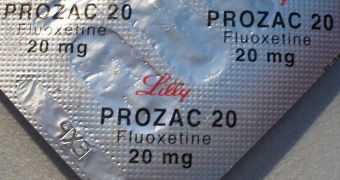According to the conclusions of a new scientific study, it would appear that people who use antidepressant medication to treat their depression are far more likely to relapse after treatment stops than those who use nothing at all.
The correlation is especially true for people suffering from major depression disorder. Researchers at the McMaster University say that individuals who do not use any sort of medication for treating their depression relapse less often than those who use specialized drugs.
In fact, the statistics evolutionary psychologist Paul Andrews included in the new study show that people who are prescribed antidepressant drugs are twice more likely to experience a relapse than peopl in the same situation who take no treatment.
This investigation is bound to add even more fuel to a debate that has already been raging on for a long time. The discussion centers on the interactions between depression and medication, and the issue is far from being settled.
During the study, Andrews found that 25 percent of people who take no drugs for major depression are at risk of relapse. On the other hand, more than 42 percent of those who do take drugs are at risk of relapse. The same goes for those who take medication for a while and then stop.
Details of the new study appear in the latest issue of the medical journal Frontiers of Psychology. The paper is authored by Andrews, who is an assistant professor in the McMaster Department of Psychology, Neuroscience & Behavior, Science Blog reports.
“We found that the more these drugs affect serotonin and other neurotransmitters in your brain – and that’s what they’re supposed to do – the greater your risk of relapse once you stop taking them,” the team leader explains.
“All these drugs do reduce symptoms, probably to some degree, in the short-term. The trick is what happens in the long term. Our results suggest that when you try to go off the drugs, depression will bounce back,” he adds.
“This can leave people stuck in a cycle where they need to keep taking anti-depressants to prevent a return of symptoms,” the expert says. This dependency can be construed as a play by pharmaceutical companies to keep people purchasing their products.
At the same time, the issue of whether depression is truly a disorder is still hotly debated. “There’s a lot of debate about whether or not depression is truly a disorder, as most clinicians and the majority of the psychiatric establishment believe, or whether it’s an evolved adaptation that does something useful,” Andrews concludes.

 14 DAY TRIAL //
14 DAY TRIAL //